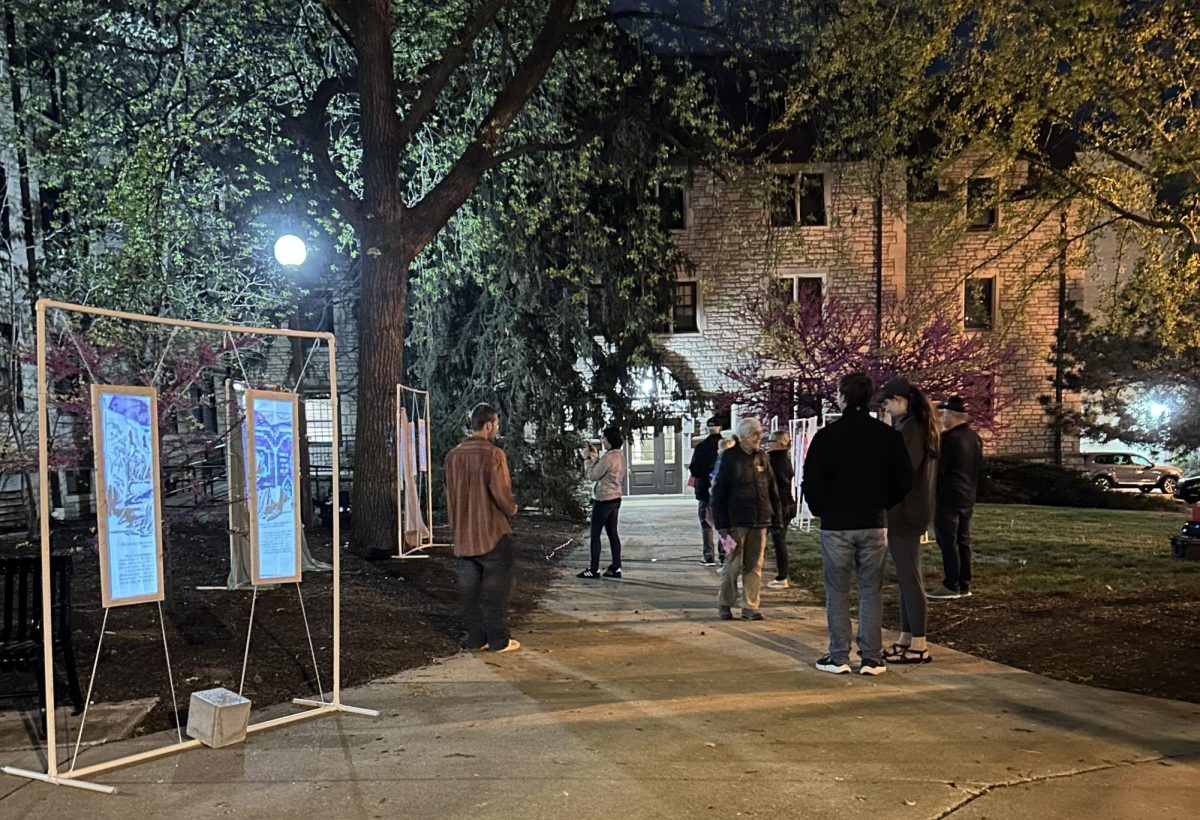After freshman Jakob Bredell’s roommate started showing symptoms for COVID-19 on Aug. 25, he assumed he needed to go to MU’s quarantine housing immediately.
After calling the Department of Residential Life and getting redirected, he was shocked by what ResLife told him: stay in his dorm room with his positive roommate, stay with a friend or pay for a hotel out of pocket until he received his roommate’s test results.
“I was just told to stay away from him, obviously, and that’s it,” Bredell said. “My only guidelines were ‘Don’t go in my room.’ [ResLife] didn’t have, really, a plan set up for potential positives.”
MU’s quarantine housing and procedures for ResLife students have been plagued by issues and miscommunication during the first few weeks of classes, causing many students to feel lost and confused when navigating COVID-19 testing and exposure.
###Quarantining After Exposure###
The MU Student Health Center recommends students who have been exposed to COVID-19 should wait seven days or until symptoms appear before getting tested to avoid false positives after exposure.
ResLife students are expected to quarantine in their rooms while awaiting test results and should follow the advice of their healthcare provider or public health official, MU spokesperson LizMcCune said.
“We do expect students awaiting test results, or those believed to be a ‘close contact,’ to take extra precautions for the safety of others,” McCune said in a statement. “Students awaiting test results should make sure to wear a mask and always maintain social distancing. Students living in residence halls will be reminded of the extra precautions that they need to take from ResLife staff.”
Quarantining can cause conflicts for students who must use community bathrooms and live around fellow peers while awaiting tests.
Freshman Kate Taylor found out she was exposed to COVID-19 and later developed symptoms on Aug. 28. She called the Student Health Center and was initially told she must wait seven days after her exposure to get tested. She was not given any directions on where or if to quarantine.
“I got a little apprehensive, like a little Karen-y, because I was like, ‘Ma’am, I live in residential housing on campus with 200 to 300 other kids,’” Taylor said. “‘I eat at dining halls. I use community bathrooms. That’s just not feasible, if there’s even a small chance because I would give it to so many other people.’”
After testing positive, an MU staff member called Taylor to ask about her quarantine plans. When Taylor asked to stay in quarantine housing to avoid exposing her family, she was told there was no room and was told to quarantine at home in St. Louis.
“I was just thinking how let down I was because I have so much pride in the school I’m going to in so many ways,” Taylor said.
Freshman Virginia Werth moved into quarantine housing in Tara Apartments on Sept. 1 after showing COVID-19 symptoms. Once she arrived, she was assigned to a two-bedroom apartment, but she says the other room remained empty throughout her stay.
“If there is anyone that needs a place to stay, I would gladly extend my open room to them, because I’m not using it,” Werth said.
McCune says both in-state and out-of-state students can stay in isolation housing. The university has designated locations where quarantine students are held, but would not disclose the locations “to protect the privacy of those who may use those spaces.”
“Currently, the university has ample capacity for additional quarantine/isolation housing,” McCune said in a statement.
MU’s Show Me Renewal plan states that after a roommate or close contact tests positive for COVID-19, students will be moved immediately into quarantine housing. However, Bredell did not get moved to quarantine housing at Campus Lodge apartments until after he tested positive on Aug. 29, despite developing symptoms and receiving a positive test from his roommate two days earlier.
While Bredell did not leave his dorm room when waiting for his test results, he was not given any instructions on whether or not he was allowed to eat in dining halls or how to get food.
“That window of time was waiting for my test results, I was kind of on my own for food,” Bredell said. “[Residential Life] didn’t tell me, ‘Don’t go to a dining hall.’ I kind of took it upon myself to not do that because, you know, it’s just not a smart thing to do.”
MU has since updated the Show Me Renewal website and sent out an email to students on Sept. 9 telling students to call (573) 882-2586 to set up plans for food delivery while awaiting test results.
###Food and Cleanliness in Quarantine Housing###
When students arrive at quarantine housing, they are given a packet instructing them on how to order meals, do laundry and keep their housing unit clean.
Meals are ordered through a web portal and delivered to students at 9:00 a.m., 12:30 p.m. and 4:30 p.m. However, Bredell started using food delivery apps after experiencing problems with the provided food.
“It’s gotten to the point where I’d rather just spend my own money and save my Tiger Cash because it’s normally cold,” Bredell said.
When Werth arrived at her apartment, she was not given hand soap for her bathroom, and did not bring any since she lived in community dorms.
“The first day I was using shampoo to wash my hands because that’s all I had until I could have my brother drop some off at my door at my apartment,” Werth said.
McCune says anyone with concerns regarding the state of their housing should contact ResLife.
“Reports are addressed as soon as they are received,” McCune said.
###Resources Available to Students###
Quarantining and testing positive for COVID-19 can be a scary experience for students who are adjusting to college life and classes.
While members of the MU Student Affairs Care Team have reached out to students to offer emotional support, many students, like Werth, feel isolated and alone in quarantine housing. Werth says she wishes she had more medical support in case she developed serious symptoms.
“I feel definitely alone here, and that I could probably just have a seizure or something and no one would ever know,” Werth said.
While Werth said she is thankful she was able to get into quarantine housing after personally reaching out to ResLife, she wishes the process to access housing was streamlined to take stress and responsibility off of students.
“I just think that there needs to be more information and more guidance on the whole process, especially for freshmen,” Werth said. “This is a new place we’ve never been before. And the whole college lifestyle is already pretty different to us. So, now, being in charge of taking this into our own hands, it seems like a very big responsibility.”
_Edited by Lucy Caile | [email protected]_












